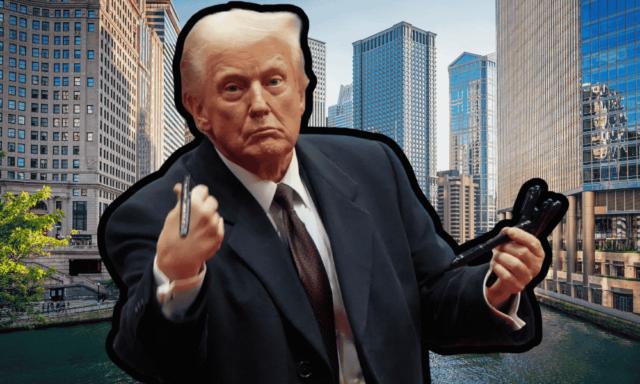Washington: The Trump administration sues Chicago, accusing local officials of obstructing federal immigration enforcement. The lawsuit, filed by the U.S. Department of Justice, targets laws that the administration claims hinder efforts to deport undocumented migrants. This legal battle is part of a broader push by the Trump administration to ramp up immigration enforcement across the United States.
The Lawsuit Details
The lawsuit names Illinois Governor JB Pritzker and Chicago Mayor Brandon Johnson as defendants. It specifically seeks to block local laws that the administration argues “interfere with and discriminate against” federal immigration policies. These local regulations are part of Chicago’s and Illinois’s stance against the administration’s aggressive deportation efforts.
Illinois has emerged as a key player in the fight against the Trump administration’s immigration policies. The state’s “Trust Act” restricts local law enforcement from detaining individuals solely based on immigration warrants. It also prohibits local agencies from collaborating with federal immigration operations or sharing information about detainees with Immigration and Customs Enforcement (ICE).
Chicago’s ordinance further limits city agencies from assisting in immigration enforcement and denies ICE agents access to detainees held in city facilities. The Trump administration’s lawsuit aims to invalidate these protections, asserting that they undermine federal authority.
Administration’s Stance
Tom Homan, the Trump administration’s border czar, has voiced strong criticism of sanctuary cities, declaring that they serve as “sanctuaries for criminals.” He emphasized the need for local authorities to cooperate with federal immigration efforts, stating, “Just let us in there.” The administration’s position is that local jurisdictions must comply with federal immigration laws and cannot obstruct law enforcement operations.
Newly appointed Attorney General Pam Bondi echoed this sentiment in a memo to her staff. She stated that jurisdictions interfering with federal law enforcement would face funding cuts. Bondi’s message reinforces the administration’s commitment to enforcing immigration laws and holding local governments accountable.
Chicago’s Response
Mayor Brandon Johnson has firmly defended Chicago’s policies, emphasizing the city’s commitment to protecting all residents, regardless of their immigration status. In a recent interview, he reiterated that the city would stand up for workers seeking good-paying jobs and asylum seekers. Johnson’s stance reflects Chicago’s long-standing tradition of supporting immigrant communities and resisting federal immigration crackdowns.
The Broader Impact
The lawsuit against Chicago highlights a growing conflict between federal immigration policies and local jurisdictions. Sanctuary cities, which limit cooperation with federal authorities, have become a flashpoint in the national debate over immigration. While the term “sanctuary city” lacks a legal definition, cities across the country have adopted various strategies to protect undocumented residents.
Since taking office, the Trump administration has significantly increased the arrest and detention of undocumented migrants in major U.S. cities. This crackdown has resulted in thousands of detentions, including individuals with no criminal records. The legal battle in Chicago may set a precedent for similar lawsuits across the country, further intensifying the ongoing immigration debate.
Conclusion
As the Trump administration continues its aggressive stance on immigration enforcement, the lawsuit against Chicago represents a critical moment in the fight over sanctuary city policies. The outcome of this legal battle could have far-reaching implications for local governments and their ability to protect undocumented residents. With the administration’s commitment to holding local officials accountable, the clash between federal and state immigration policies is set to escalate.











